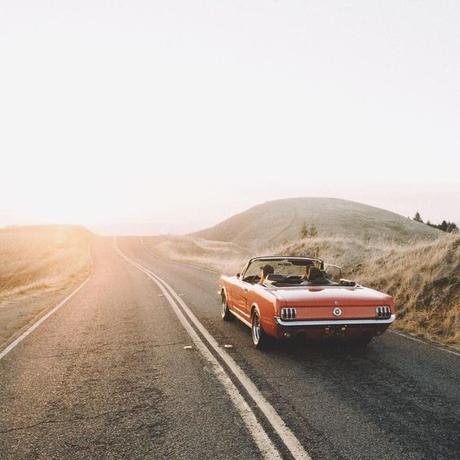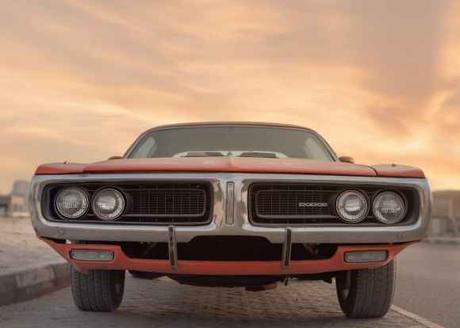Considering buying a classic car? It's an exciting venture that combines passion, history, and individuality. However, this purchase is not like buying a regular vehicle. There are unique challenges and joys when dealing with classics. This blog will guide you through everything you need to know before making such an investment. You'll get insights into choosing the right model, understanding costs, and ensuring it's a worthwhile purchase. Whether you're a first-time buyer or a seasoned enthusiast, this guide is tailored to help you make an informed decision.

Understanding Classic Cars
What Defines a Classic Car?
Classic cars are typically defined as vehicles that are at least 20-30 years old. These cars are not just old; they have historical significance and a charm that modern vehicles lack. Owning a classic car is like owning a piece of history. But what makes a car "classic" can vary. Some consider cars with unique designs or those that played a significant role in automotive history to be classics. Before you buy, understand what makes a car classic and why these features matter.
Why Buy a Classic Car?
There are many reasons to buy a classic car. For some, it's the nostalgia of owning a car they admired in their youth. For others, it's the allure of craftsmanship and design that modern cars don't offer. Classic cars also tend to appreciate in value over time, making them a potential investment. Owning a classic car can also be a gateway into a vibrant community of enthusiasts. However, this decision should be based on thorough research and personal preference.
The Popularity of Classic Cars
Classic cars continue to gain popularity for their timeless appeal and unique driving experience. There's a growing market for these vehicles, driven by both collectors and new enthusiasts. Auctions and car shows highlight the passion and dedication within the community. Knowing the trends and market preferences can help you make a smarter buying decision. Keep an eye on popular models and understand what makes them stand out.
Choosing the Right Classic Car
Researching Models and Brands
Before making a purchase, research is crucial. Start by identifying the models and brands that interest you. Look into their history, performance, and common issues. Resources like classic car magazines, online forums, and dedicated websites offer valuable information. Understanding the strengths and weaknesses of different models can help you narrow down your choices. Don't rush this step; the more informed you are, the better decision you'll make.
Evaluating the Condition

The condition of a classic car can vary greatly. Some are well-preserved, while others need extensive restoration. Inspect the car thoroughly or hire a professional to do so. Check for rust, mechanical issues, and the authenticity of parts. Restoration can be costly, so factor these potential expenses into your budget. Knowing the car's condition helps you negotiate a fair price and avoid unexpected surprises down the road.
Setting Your Budget
Setting a budget is essential when buying a classic car. Besides the purchase price, consider ongoing costs like maintenance, insurance, and storage. Classic cars require more upkeep than modern vehicles, which can add up over time. Determine how much you're willing to spend initially and annually. A clear budget helps you avoid overspending and ensures you get the best value for your money.
The Buying Process
Finding a Reputable Seller
Start by looking for sellers who specialize in classic cars, as they are more likely to have the expertise and knowledge required to provide you with accurate information about the vehicle. Online marketplaces, classic car dealerships, and auctions are common places to start your search. Additionally, it's advisable to read reviews, ask for references, and check the seller's history of transactions to gauge their reliability. When you delve into the world of owning classic cars , the last thing you want is to deal with unforeseen issues or unscrupulous sellers. Building a relationship with a reputable seller can also be beneficial for future purchases or if you need advice on maintaining your classic vehicle.
Authenticity and Documentation
Authenticity is vital in the classic car world. Verify the car's history and ensure all documentation is in order. This includes the vehicle identification number (VIN), service records, and ownership history. Authentic documents confirm the car's legitimacy and value. Missing or forged documents can lead to legal issues or financial loss. Make sure everything checks out before finalizing the deal.
Negotiating the Price
Negotiating the price is an art, especially with classic cars. Do your research to understand the car's market value and be prepared to negotiate. Sellers often expect to bargain, so don't hesitate to discuss the price. Use the car's condition and any needed repairs as leverage. A fair negotiation benefits both parties and can save you a significant amount of money.
Ownership and Maintenance
- Regular Maintenance Tips: Owning a classic car requires regular maintenance to keep it in top condition. This includes routine checks, oil changes, and proper storage. Unlike modern cars, classic cars need special attention and care. Create a maintenance schedule and stick to it. Regular upkeep prevents major issues and preserves the car's value. Don't neglect minor repairs; they can escalate into costly problems.
- Finding the Right Mechanic: Finding a mechanic experienced with classic cars is essential. Not all mechanics are familiar with the intricacies of older vehicles. Look for specialists who understand the unique needs of classic cars. Join local car clubs or online forums to get recommendations. A skilled mechanic can maintain and repair your car efficiently, ensuring it runs smoothly for years to come.
- Insurance and Legal Considerations: Insuring a classic car is different from insuring a modern vehicle. Classic car insurance often provides agreed-value coverage, which ensures you receive the car's full value in case of a total loss. Research different insurance providers and their policies. Additionally, understand the legal requirements for classic car ownership in your area. Proper insurance and legal compliance protect your investment.
Buying a classic car is a thrilling experience that requires careful consideration and preparation. From understanding what makes a car classic to navigating the buying process and maintaining your vehicle, this guide covers all essential aspects. Classic car ownership offers a unique blend of enjoyment and investment potential. By following these steps, you can make an informed and rewarding purchase. Ready to take the plunge? Explore the world of classic cars and start your journey today.
Fraquoh and Franchomme
P.S. We want to hear from you! Do you like classic cars? Which car is your favorite? Why? Share your feedback, questions or thoughts in the comments below! For more articles on style, fashion tips and cultural insights, you can subscribe to Attire Club via e-mail or follow us on Facebook, Twitter or Instagram!

